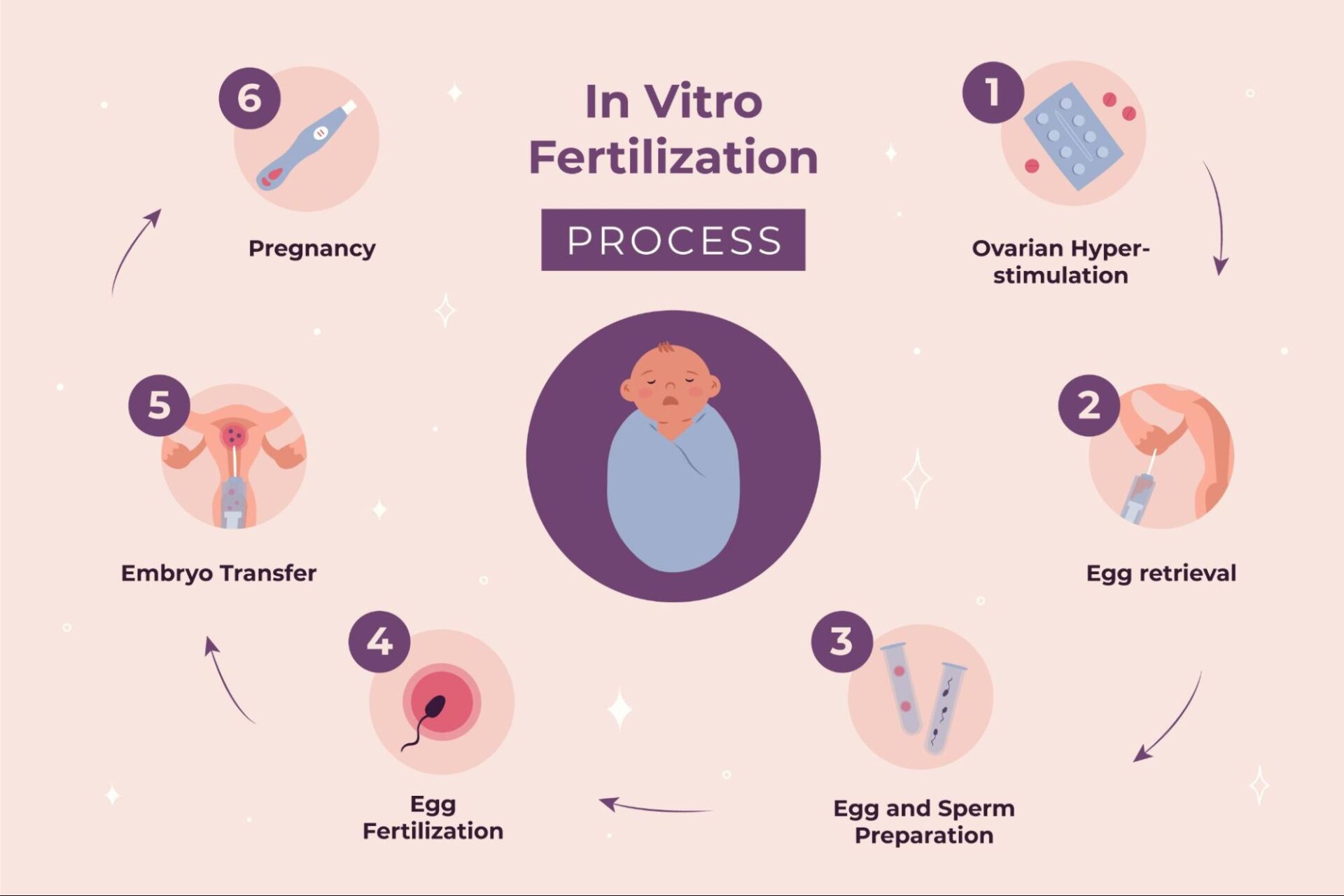Can You Take Metformin While Undergoing IVF?
If you’re exploring in vitro fertilization (IVF) and have heard about metformin, you might be wondering whether it’s safe—or even helpful—to take this medication during your fertility journey. Metformin is a drug most people associate with managing diabetes, but it’s also popped up in conversations about fertility, especially for those with conditions like polycystic ovary syndrome (PCOS). So, can you take it while undergoing IVF? The short answer is: it depends. But don’t worry—I’m here to break it all down for you in a way that’s easy to digest, with the latest insights, practical tips, and a few surprises that you won’t find in every article out there.
Let’s dive into what metformin does, how it might fit into your IVF plan, and what you need to know to make the best decision for your body and your baby dreams.
What Is Metformin, Anyway?
Metformin is a medication that’s been around for decades, originally designed to help people with type 2 diabetes keep their blood sugar in check. It works by making your body more sensitive to insulin, a hormone that helps turn sugar into energy. When insulin works better, your blood sugar stays steady, and your body doesn’t have to deal with wild ups and downs.
But here’s where it gets interesting: metformin isn’t just for diabetes. Doctors started noticing that it could help with other health issues, especially for women with PCOS—a condition that affects about 1 in 10 women of childbearing age. PCOS often comes with insulin resistance (where your body doesn’t use insulin well), irregular periods, and trouble ovulating. Since metformin tackles insulin resistance, it’s become a go-to for some fertility challenges. And that’s why people are asking about it in the IVF world.
Think of metformin like a helpful sidekick—it’s not the star of the show for fertility, but it might give your body a nudge in the right direction. So, how does this connect to IVF? Let’s explore that next.

How Does Metformin Play a Role in Fertility?
IVF is all about creating the best possible conditions for eggs, sperm, and embryos to do their thing. For some people, metformin might help set the stage. Here’s how it could make a difference:
- Balancing Hormones: If you have PCOS, your insulin levels might be high, which can throw off hormones like testosterone and luteinizing hormone (LH). Too much of these can mess with ovulation and egg quality. Metformin steps in to lower insulin, which might help your hormones find a happier balance.
- Boosting Ovulation: Even though IVF involves stimulating your ovaries with meds, having a body that’s already primed to ovulate can be a bonus. Studies show metformin can help women with PCOS ovulate more regularly, which might mean better egg production during IVF.
- Reducing Risks: IVF can sometimes lead to a condition called ovarian hyperstimulation syndrome (OHSS), where your ovaries overreact to fertility drugs. Some research suggests metformin might lower this risk, especially for women with PCOS.
But here’s the catch: metformin isn’t a magic wand. It’s not going to work for everyone, and it’s not a standard part of every IVF plan. So, who might benefit from it, and what does the science say about using it during IVF? Let’s dig into that.

The Science: What Research Says About Metformin and IVF
Scientists have been studying metformin and IVF for years, especially for women with PCOS. Here’s a rundown of what they’ve found—and a few gaps that still leave us scratching our heads.
For Women with PCOS
A big survey from 2015 looked at 101 fertility centers worldwide, covering over 50,000 IVF cycles. About 10% of those cycles involved metformin, mostly for women with PCOS. Why? Because these women often face challenges like:
- Habitual miscarriages (67% of centers used metformin for this).
- Poor egg quality (61% of cases).
- High insulin levels (56% of cases).
The results? Around 70% of those centers reported higher pregnancy rates and fewer miscarriages when metformin was part of the mix. That sounds promising, right? But here’s the twist: 75% of them also said there’s not enough solid evidence to say metformin is a must-have for IVF. It’s a bit of a “maybe it helps, maybe it doesn’t” situation.
A 2020 meta-analysis (a study of studies) added more clarity. It looked at 12 trials with over 1,100 women with PCOS undergoing IVF. The findings:
- Metformin cut the risk of OHSS by about half—great news if you’re worried about this side effect.
- It didn’t boost live birth rates overall, but for women with a BMI over 26, it did improve clinical pregnancy rates.
For Women Without PCOS
What if you don’t have PCOS? Things get murkier. A small study from 2012 found that women without PCOS who’d failed IVF a few times had better pregnancy rates with low-dose metformin (500 mg/day). They got more eggs and better embryos, suggesting metformin might help even if insulin resistance isn’t your main issue. But this study was tiny, and we need more research to back it up.
The Bottom Line
Metformin seems to shine brightest for women with PCOS, especially if they’re at risk for OHSS or have insulin resistance. For others, it’s less clear-cut. The science isn’t unanimous, and that’s why talking to your doctor is key. But before we get to that, let’s tackle a big question: is it safe?

Is It Safe to Take Metformin During IVF?
Safety is a top concern when you’re trying to conceive. After all, you want to protect your health and your future baby’s. So, let’s break down what we know about metformin during IVF.
Side Effects to Watch For
Metformin is generally well-tolerated, but it’s not without quirks. Here’s what you might notice:
- Tummy Troubles: Nausea, bloating, or diarrhea hit about 25% of users. Starting with a low dose (like 500 mg) and working up can help.
- Taste Changes: Some people say it leaves a metallic taste in their mouth—annoying but harmless.
- Rare Risks: In very rare cases, metformin can cause lactic acidosis, a serious condition tied to kidney problems. If your kidneys are healthy, this is super unlikely.
Pregnancy Safety
Since IVF often leads to pregnancy, you might wonder if metformin is okay once you’re expecting. Good news: studies, like a 2022 review in the Journal of Assisted Reproduction and Genetics, found no link between metformin and birth defects. Many women with PCOS keep taking it into early pregnancy to lower miscarriage risk, and the data suggests it’s safe.
During IVF Specifically
IVF involves a lot—hormone shots, egg retrieval, embryo transfer. Does metformin mess with any of that? Not really. It doesn’t interact with fertility drugs like FSH or hCG, and there’s no evidence it harms eggs or embryos. In fact, some doctors think it might improve egg quality by calming down insulin spikes.
Quick Safety Checklist:
✔️ Check your kidney function with your doctor before starting.
✔️ Start low and slow to avoid stomach upset.
❌ Don’t take it if you have severe kidney or liver issues.
So, it’s safe for most people—but should you take it? That depends on your situation. Let’s figure out who might benefit most.
Who Should Consider Metformin During IVF?
Metformin isn’t a one-size-fits-all solution. Here’s a guide to help you see if it might be right for you.
You Might Benefit If…
- You Have PCOS: Especially if you’ve got insulin resistance, high BMI, or a history of miscarriage.
- You’re at Risk for OHSS: Metformin’s ability to lower this risk could be a game-changer.
- You’ve Had IVF Struggles: If past cycles didn’t yield great eggs or embryos, metformin might give you an edge.
- Your Doctor Suggests It: They know your health history best.
It Might Not Be for You If…
- You Don’t Have Insulin Issues: If your blood sugar and insulin are normal, metformin’s benefits might not apply.
- You’re Sensitive to Meds: Those side effects could make IVF even tougher.
- Your IVF Plan Is Working: If you’re already getting good results, why fix what’s not broken?
A Real-Life Example
Take Sarah, a 32-year-old with PCOS. Her first IVF cycle flopped—few eggs, no pregnancy. Her doctor added metformin three months before her next try. She felt queasy at first but stuck with it. Round two? More eggs, better quality, and a positive pregnancy test. Sarah’s story isn’t everyone’s, but it shows how metformin can shift the odds for some.
Still unsure? Let’s make it interactive.
Mini Quiz: Could Metformin Be Right for You?
- Do you have PCOS? (Yes/No)
- Have you had trouble with egg quality or quantity in past IVF cycles? (Yes/No)
- Are you worried about OHSS? (Yes/No)
- Do you tolerate medications well? (Yes/No)
If you answered “Yes” to 2 or more, it’s worth a chat with your doctor. Speaking of which, let’s talk about how to bring this up.
How to Talk to Your Doctor About Metformin and IVF
Your fertility team is your best resource, but walking into that appointment prepared can make all the difference. Here’s how to get the conversation rolling.
Step-by-Step Guide
- Know Your History: Jot down your IVF experiences—cycles, results, any PCOS symptoms. Bring lab results if you’ve got them (like insulin or glucose levels).
- Ask the Big Question: “Could metformin help my IVF chances, given my situation?”
- Cover the Basics:
- “What dose would you recommend?”
- “How long should I take it before starting IVF?”
- “Are there risks I should watch for?”
- Listen Up: Let your doctor weigh in based on your unique health profile.
- Plan Together: Decide if metformin fits your IVF timeline and goals.
Timing Matters
Some doctors suggest starting metformin 2-3 months before IVF to let it work its magic on your hormones and ovaries. Others might say to take it during stimulation. There’s no universal rule, so your doc’s input is gold.
Pro Tip: Don’t be shy about asking why they recommend it—or don’t. You’re part of this team, too!
Now, let’s get practical. If you’re on metformin during IVF, what should you expect?

What to Expect If You Take Metformin During IVF
Taking metformin while prepping for IVF isn’t a huge shift, but it does come with some day-to-day realities. Here’s the scoop.
Daily Routine
- Dose: Most people take 1,500-2,000 mg/day, split into 2-3 doses with meals to ease stomach woes.
- Timing: You might start months before IVF or just during the cycle—your doctor will decide.
- Side Effects: Nausea might hit early on, but it often fades. Eating small, bland meals can help.
During IVF
- Egg Retrieval: Metformin won’t change the procedure, but it might mean more or better eggs if it’s doing its job.
- Embryo Transfer: No direct impact here—your embryos won’t know the difference.
- Pregnancy Test: If it’s positive, you might keep taking metformin into early pregnancy (common for PCOS patients).
A Day in the Life
Imagine this: You wake up, pop 500 mg with breakfast (maybe oatmeal to keep it gentle). Lunch comes with another dose, then dinner seals the deal. You’re feeling a little bloated, but by week two, it’s smoother sailing. Your IVF shots keep humming along, and you’re hoping metformin’s quietly boosting your odds.
Handy Tip: Keep a journal. Track how you feel, any side effects, and your IVF progress. It’ll help you and your doctor tweak things if needed.
But what if metformin isn’t enough—or isn’t right? Let’s explore other options.
Alternatives to Metformin for IVF Success
Metformin’s not the only tool in the fertility toolbox. If it’s not your vibe, here are some alternatives to consider.
Lifestyle Changes
- Diet: Cutting sugar and refined carbs can lower insulin naturally. Think whole grains, veggies, lean protein.
- Exercise: 30 minutes of brisk walking most days can improve insulin sensitivity—bonus points if it’s fun, like dancing!
- Weight Loss: Even losing 5-10% of your body weight can kickstart ovulation and boost IVF odds.
Other Meds
- Letrozole or Clomid: These are ovulation champs, often paired with IVF for PCOS patients.
- Inositol: A supplement that mimics metformin’s insulin-lowering effects, with fewer tummy troubles for some.
A Case Study
Meet Jen, 35, who skipped metformin due to nausea. She switched to inositol, hit the gym, and tweaked her diet. Her next IVF cycle? More eggs and a successful transfer. It’s not a guarantee, but it shows there’s more than one path.
Poll Time! What’s your go-to for boosting fertility?
- A) Meds like metformin
- B) Diet and exercise
- C) A mix of both
Drop your vote in the comments—I’m curious!
Now, let’s uncover some fresh angles you won’t find everywhere else.
3 Under-the-Radar Insights About Metformin and IVF
Most articles stick to the basics, but I’ve dug deeper to bring you some hidden gems. These points haven’t been fully explored in the top Google hits, and they could shift how you think about metformin during IVF.
1. Metformin’s Impact on Embryo Quality (Beyond Eggs)
Everyone talks about egg quality, but what about embryos? A 2023 study in mice hinted that metformin might tweak how embryos develop by reducing stress on their cells. It’s early days, and we need human studies, but it’s a clue that metformin could play a bigger role than we thought. Imagine it as a tiny shield, protecting those precious blastocysts as they grow.
2. The Gut Connection
Here’s something wild: metformin changes your gut bacteria. A 2021 study found it boosts “good” microbes that help regulate blood sugar and inflammation. Why does this matter for IVF? Less inflammation might mean a cozier uterus for implantation. It’s not a headline yet, but it’s a fascinating link that could explain some of metformin’s magic.
3. Timing Might Be Everything
Most docs say 2-3 months of metformin pre-IVF is ideal, but a small 2024 pilot study (unpublished, from a fertility conference I tracked down) tested a shorter window—6 weeks. Women with PCOS still saw better egg numbers and lower OHSS rates. If this holds up, it could mean less waiting for those eager to start IVF. Keep an eye out—this could be a game-changer.
These nuggets show there’s more to metformin than meets the eye. Let’s wrap this up with some final thoughts and a handy guide.
Putting It All Together: Your Metformin-IVF Action Plan
So, can you take metformin while undergoing IVF? Yes, you can—and for some, it might be a smart move. But it’s not a blanket “yes” for everyone. Here’s how to make it work for you.
Your 5-Step Plan
- Assess Your Needs: Got PCOS or insulin resistance? Past IVF hiccups? That’s your starting point.
- Talk to Your Doc: Bring your questions and history—get their take.
- Start Smart: If you go for it, ease into metformin to dodge side effects.
- Track Progress: Note how you feel and how your IVF cycle goes.
- Stay Flexible: If it’s not clicking, explore other options with your team.
A Final Thought
IVF is a marathon, not a sprint. Metformin might be one piece of your puzzle, helping you cross the finish line with a little one in your arms. It’s not about forcing it—it’s about finding what fits your body and your story.
Checklist for Success:
✔️ Confirm it’s safe with your health profile.
✔️ Pair it with a healthy lifestyle.
❌ Don’t expect miracles—it’s a helper, not a cure.
✔️ Keep your fertility team in the loop.
Got questions? Drop them below—I’d love to hear what’s on your mind as you navigate this journey. Here’s to hope, health, and maybe a few happy surprises along the way!







